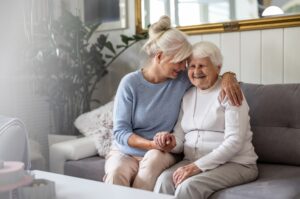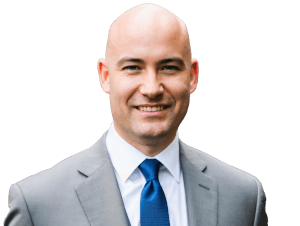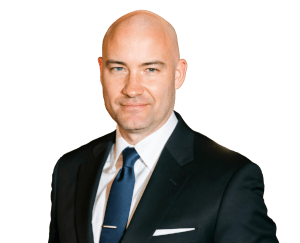
If your loved one is injured in a nursing home fall, make sure they get the medical attention they need and confer with staff to understand the reason for the accident. If you believe staff negligence played a role, you may report the incident and consult with an attorney.
If neglect or abuse caused your loved one’s fall and injury, our Atlanta nursing home abuse lawyers can help you hold the nursing home accountable. We’ve recovered millions on behalf of injured residents and their families. Call today for a free consultation.
Insist on Comprehensive Medical Attention
When a loved one is injured in a fall at a nursing home, the first priority is to make sure they receive the medical care they need. Staff should arrange any necessary tests, like X-rays or a CT scan, especially if there’s concern about a head injury or broken bones.
Asking for clear details about what happened and what’s being done is completely appropriate. If you’re authorized as a health care proxy or, with your loved one’s permission, they can and should keep you informed.
It’s important to advocate for your loved one’s care, even if you trust the facility.
Collect Information Regarding the Incident
After the fall, ask the nursing home for an official incident report to understand what occurred. Review your loved one’s care plan to determine if they were identified as a fall risk and whether any safety measures were in place.
The facility might schedule a care plan meeting to address the incident and reevaluate fall risk or other care details. Attend if you can to make sure your loved one has an advocate in the room.
Document Everything
Take photographs of your loved one’s injuries and the area where the fall occurred, if possible. Write down the names of staff involved, what they told you, and any inconsistencies in their accounts.
Collecting evidence is one of the most important things you should do if your loved one is injured in a nursing home fall. This might include medical records, hospital bills, and diagnoses related to the incident.
These details may be critical if questions arise later or if legal action becomes necessary. Documentation creates a timeline of events and helps ensure that your concerns are taken seriously.

Remain Vigilant for Signs of Neglect or Abuse
While falls can happen, serious or repeated injuries may suggest neglect or abuse. Consider whether staff supervision was adequate and if your loved one’s environment was safe. Look for hazards that may have contributed to the fall, such as a lack of handrails or damaged flooring.
Investigate whether the nursing home used proper precautions like chair alarms, rails, or mobility aids, as per your loved one’s care plan. Also, ask about medication side effects that could increase fall risks.

Report the Incident
If you believe the nursing home acted negligently or failed in its duties, you should report the incident to the proper authorities. In Georgia, you can file a complaint with the Healthcare Facility Regulation Division of the Department of Community Health.
You can also report your concerns to the ombudsman assigned to your area. Ombudsmen are volunteers trained to investigate issues in nursing homes. They will look into your allegations, and their report could trigger an inspection or other corrective actions.
Consult With an Attorney
If the injury was serious and resulted from negligence, consult an elder law attorney. An experienced lawyer can review medical records, facility reports, and other evidence to determine whether the nursing home breached its legal duties.
Legal action may lead to compensation for medical bills, pain and suffering, or even punitive damages. It can also pressure facilities to improve their care practices and prevent future harm to others.
Sometimes people won’t ask for legal help because they aren’t sure their concerns rise to the level of a personal injury claim or lawsuit. Our firm offers free consultations where we can discuss your case and advise you of the best course of action.
Monitor Ongoing Care
After the fall, it’s important to stay involved in your loved one’s care. You may wish to increase the frequency of your visits to observe their recovery and make sure they’re receiving appropriate treatment.
You can request a formal update to their care plan to reflect any new needs or risks, and attend care plan meetings whenever possible. However, it’s okay to communicate with staff and ask for progress updates at any time.
If the facility seems dismissive, unsafe, or unresponsive, you may need to explore alternative care options. Report your experiences, and consult with an attorney.
Get Help if Your Loved One Is Injured in a Fall
One of the most important things you should do if your loved one is injured in a nursing home fall is to communicate your concerns to people who can help. This may be the facility administrator, an ombudsman, or the Georgia Department of Community Health.
Or, it may be an attorney if you believe abuse or neglect contributed to the incident. Call us today for a free consultation. Our team at Schenk Nursing Home Abuse Law is here to help you and your loved one hold the nursing home accountable.




